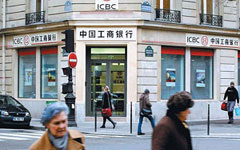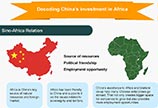Bankers see renminbi on rising road
By Wei Tian in Shanghai (China Daily) Updated: 2014-05-09 07:10"With a 2020 horizon, we think that China's capital account should be 'open' by then, albeit with some Chinese characteristics. There should be greater and more seamless direct investment flows with global renminbi liquidity facilitating global cross-border trades and payments efficiently. We are optimistic about the Chinese leadership's resolve to continue with this cautious but bold ambition," Ling said.
 |
For example, as the dim sum bond market has evolved, spreads between dim sum bond yields and those of onshore bonds have narrowed since the dim sum market opened in July 2010. The average coupon on dim sum bonds has moved to 3.2 percent this year from 2.4 percent in 2010, while the average coupon on onshore bonds has fallen to 3.8 percent from 4.7 percent in 2010.
"Gradual onshore and offshore participation in the renminbi markets by global central banks and investors through the use of swap lines, the Qualified Foreign Institutional Investor and Renminbi Qualified Foreign Institutional Investor programs, the rapidly growing offshore or 'dim sum' bond markets and the rise of offshore renminbi centers-Hong Kong being the largest-have contributed to the first phase of the yuan's internationalization, but there is still a long way to go," said Patrick Pang, managing director of fixed income at ASIFMA.
"The recent announcement of the Shanghai-Hong Kong Stock Connect pilot program is a prime example of the evolving and exciting landscape," Pang said.
- Social media inform more consumers
- Decoding China's investment in Africa
- China mulls amending water pollution law
- China's Cheetah Mobile makes trading debut in New York
- Chinese studio aims high in Hollywood partnership
- Nation's mobile gaming industry heading to top of league
- Suning powers up profit-building plan
- China's banks face rising financial risks: economist

















